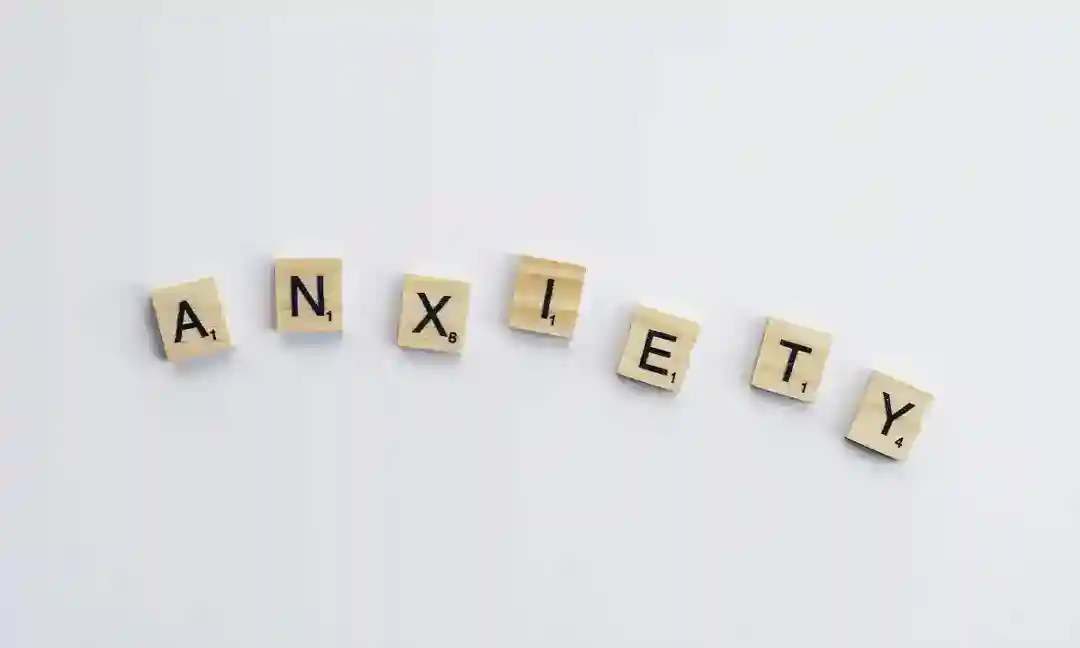Understanding Post-Traumatic Stress Disorder (PTSD)

What is PTSD and How Can You Overcome It?
Post-traumatic stress disorder or ptsd is a mental health condition that emerges in response to a terrifying event. It could be an event you experienced firsthand or one you witnessed. The symptoms can be quite unsettling, including flashbacks, nightmares, and severe anxiety, as well as uncontrollable thoughts about the event. While it is common for people to struggle with coping after a traumatic event most individuals are able to recover with time and good self-care. However, if the symptoms persist for months or even years, and they start to interfere with your daily life, you might be dealing with PTSD. Getting the right treatment for ptsd is crucial. It can significantly reduce symptoms and improve your overall functioning. Its important to remember that ptsd is not a sign of weakness but rather a sign that youve been through something incredibly challenging.

What is PTSD and How Can It Affect Your Life?
Post-traumatic stress disorder or ptsd is a condition that can develop after experiencing a traumatic event. This can be anything from a car accident to combat sexual assault or a natural disaster. If you have ptsd symptoms they can start as soon as a month after the event but can also appear years later. These symptoms can cause significant problems in social or work situations and in relationships. They can also interfere with your ability to go about your normal daily tasks. Ptsd symptoms are generally grouped into four categories intrusive memories avoidance negative changes in thinking and mood and changes in physical and emotional reactions. Symptoms can vary over time or vary from person to person. Intrusive memories can include recurrent unwanted distressing memories of the traumatic event reliving the traumatic event as if it were happening again flashbacks upsetting dreams or nightmares about the traumatic event and severe emotional distress or physical reactions to something that reminds you of. Avoidance symptoms may include trying to avoid thinking or talking about the traumatic event, avoiding places, activities or people that remind you of the traumatic event. Negative changes in thinking and mood can include negative thoughts about yourself other people or the world hopelessness about the future memory problems difficulty maintaining close relationships feeling detached from family and friends lack of interest in activities you once enjoyed difficulty experiencing positive emotions and feeling emotionally numb. Changes in physical and emotional reactions can include being easily startled or frightened, always being on guard for danger, self-destructive behavior, trouble sleeping, trouble concentrating, irritability, angry outbursts or aggressive behavior, and overwhelming guilt or shame. For children 6 years and younger signs and symptoms may also include re-enacting the traumatic event or aspects of the traumatic event through play and frightening dreams that may or may not include aspects of the traumatic. Ptsd symptoms can vary in intensity over time. You may have more ptsd symptoms when youre stressed in general or when you come across reminders of what you went through. For example you may hear a car backfire and relive combat experiences. Or you may see a report on the news about a sexual assault and feel overcome by memories of your own assault.

How Can You Overcome PTSD and Regain Control Over Your Life?
When youve experienced a traumatic event its natural to feel overwhelmed and to struggle to cope. But if these feelings persist for more than a month its crucial to seek help. Post-traumatic stress disorder or ptsd can develop when the distressing memories of the event continue to haunt you affecting your daily life and your well-being. As soon as possible it is important to recognize the signs of ptsd and seek professional help. Disturbing thoughts and feelings about the traumatic event if they persist for more than a month are a clear indication that you need to talk to your doctor or a mental health professional. These symptoms can be severe making it difficult for you to regain control over your life. The sooner you get a treatment the better. It can help you prevent ptsd symptoms from getting worse and improve your quality of life. Remember that seeking help is not a sign of weakness but rather a sign of strength and courage to face your challenges head-on.

How to Overcome Suicidal Thoughts and Find Hope in the Darkness
If you or someone you know is grappling with suicidal thoughts its crucial to seek help immediately. One effective way to do this is by reaching out to a close friend or loved one who can provide emotional support and help you navigate these challenging feelings. Additionally turning to a minister spiritual leader or someone in your faith community can offer a sense of comfort and guidance during this difficult period. Another vital resource for those experiencing suicidal thoughts is a suicide hotline. If you live in the united states you can call or text 988 to reach the 988 suicide crisis lifeline which is available 24 hours a day seven days a week. This service is free and confidential providing a safe space to discuss your feelings without fear of judgment. Alternatively you can use the lifeline chat for online support. Making an appointment with your doctor or mental health professional is an essential step in addressing suicidal thoughts. These trained professionals can help you identify underlying causes of your feelings and develop strategies to manage them. They can also provide you with tools and resources to cope with stress and difficult emotions, helping you work towards a healthier and more fulfilling life. Remember that seeking help for suicidal thoughts is not a sign of weakness but rather a sign of strength and resilience. Make sure you prioritize mental health and well-being and that you are not alone in your struggles. Using the right support and resources its possible to overcome these challenging feelings and live a life filled with hope and purpose.

What is the Abyss of Your Own Mind and How Can You Find Hope in the Darkness?
When youre trapped in the abyss of your mind its easy to lose sight of hope. But remember youre not alone. If youre considering suicide please know that there are people who care about you and want to help you. Please call 911 or your local emergency number immediately. Its a brave step but its the first step towards healing. If youre worried about a friend or loved one who might be in danger of attempting suicide dont hesitate to act. Keep them safe and call for emergency help. What should we do? it could save a life. Remember youre not just saving a life youre giving someone a second chance at finding happiness and fulfillment.

How Does PostTraumatic Stress Disorder Impact Mental Health and Overall Wellbeing?
Post-traumatic stress disorder or ptsd is a mental health condition that can develop after experiencing witnessing or learning about a traumatic event involving actual or threatened death serious injury or sexual violation. The exact causes of ptsd are not fully understood, but it is believed to be the result of a complex interplay between stressful experiences, inherited mental health risks, personality traits, and how the brain processes stress. This complex mix can lead to the development of ptsd which can have a profound impact on an individuals mental health and overall well-being.

What Triggers PTSD and How Can You Protect Yourself?
Post-traumatic stress disorder ptsd is a condition that can affect individuals of all ages. It often occurs after a person experiences a traumatic event. Some factors can increase the likelihood of developing ptsd such as experiencing intense or long-lasting trauma having a history of childhood abuse or having a job that exposes you to traumatic events like military personnel and first responders. Other mental health issues substance misuse lacking a support system or having blood relatives with mental health problems can also increase the risk. The most common events that lead to ptsd include combat exposure childhood physical abuse sexual violence physical assault being threatened with a weapon and accidents. Other traumatic events such as fire natural disasters mugging robbery plane crash torture kidnapping life-threatening medical diagnosis terrorist attack and other extreme or life-threatening events can also cause ptsd. Its crucial to understand these risk factors and the types of traumatic events that can lead to ptsd to better support those who may be affected.

How Can PTSD Affect Your Life and What Are the Ways to Overcome It?
Post-traumatic stress disorder or ptsd is a mental health condition that can severely disrupt a persons life. It can impact their job, relationships, health, and overall enjoyment of everyday activities. Ptsd is often triggered by a traumatic event such as a natural disaster assault or military combat. Those who suffer from ptsd may experience flashbacks nightmares and avoidance of places or activities that remind them of the traumatic event. In addition to the direct effects of ptsd it can also increase the risk of other mental health conditions. For example people with ptsd are more likely to experience depression and anxiety. They may also struggle with substance abuse eating disorders and even suicidal thoughts and actions. Due to this fact ptsd can alter the brains chemistry and disrupt normal emotional responses making it more difficult to cope with stress and maintain a healthy lifestyle. It is crucial for individuals with ptsd to seek professional help. This can include therapies such as cognitive behavioral therapy cbt or exposure therapy which can help them process their trauma and learn coping strategies. Medications such as antidepressants or anti-anxiety drugs may also be prescribed to alleviate symptoms. With the right treatment and support it is possible for people with ptsd to manage their symptoms and improve their quality of life.

How to Find Solace and Overcome PTSD After a Traumatic Event
Surviving a traumatic experience can be a harrowing experience leaving you with feelings of fear anxiety anger depression and guilt. These are common reactions to trauma but the good news is that the majority of people exposed to such events do not develop long-term post-traumatic stress disorder ptsd. The key to preventing normal stress reactions from escalating into ptsd is to seek immediate help and support. Getting help from family and friends could mean turning to a mental health professional for a brief course of therapy. For some, turning to their faith community may also provide solace and guidance. Support from others is crucial in preventing unhealthy coping methods such as alcohol or drug misuse. By reaching out to those who care about you, you can find the strength to navigate through difficult times and avoid falling into destructive patterns. Please remember that youre not alone in your struggle and that there are people and resources available to help you heal and move forward.